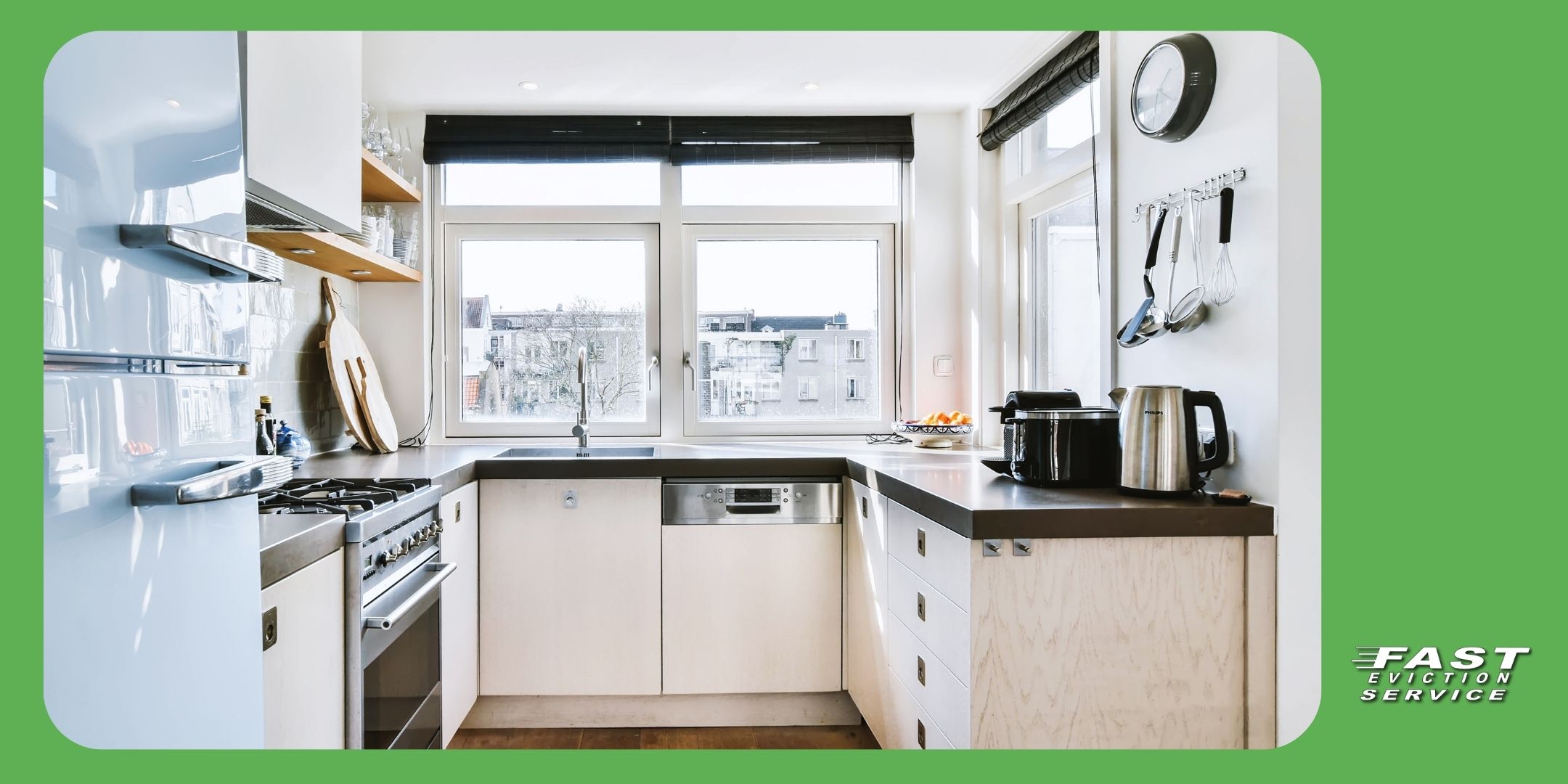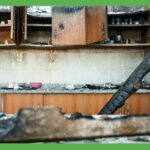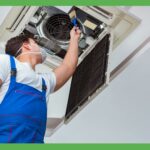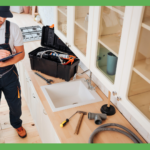You are represented at all times by one of our California Eviction Attorneys | 1-800-686-8686 | intake@fastevict.com | Se habla español
The Landlord’s Guide to Rental Property Maintenance and Repairs
Updated 04/15/25
Owning a rental property isn’t just about collecting monthly rent—it’s about protecting a long-term investment. That protection starts with regular maintenance and timely repairs. As a landlord, you’re legally and financially responsible for keeping your rental in livable condition. But beyond compliance, proactive upkeep helps you avoid costly emergencies, retain good tenants, and increase the value of your property.
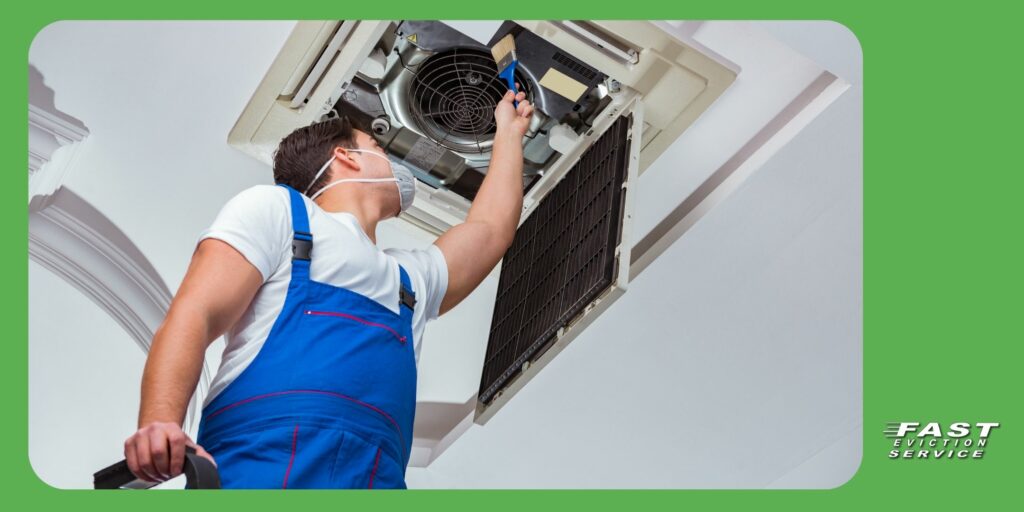
Whether you’re managing one rental or several, understanding the most common issues and how to address them is crucial. This guide walks you through the top repair and maintenance concerns for rental property owners and provides tips that save money, reduce stress, and support your success as a landlord.
Table of Contents
- Why Preventative Maintenance Saves Landlords Money
- Top 10 Rental Property Problems (And How to Fix Them)
- How to Maintain Fire Safety With Working Smoke Detectors
- Spotting and Stopping Water Leaks Before They Cause Damage
- Tips for Water Heater Maintenance in Rental Units
- Preventing HVAC Breakdowns With Seasonal Tune-Ups
- Plumbing Problems Every Landlord Should Watch For
- What Tenants Should Never Put in a Garbage Disposal
- Toilet Troubles: How to Handle the Most Common Clogs
- Electrical Safety Tips for Landlords and Tenants
- Keeping Your Rental Pest-Free With Regular Prevention
- Repairing Drywall After Tenant Move-Outs
- Why Every Landlord Needs Rental Property Insurance
- Educating Tenants to Reduce Maintenance Calls
- When to DIY and When to Call a Professional
- Frequently Asked Questions
Why Preventative Maintenance Saves Landlords Money
Preventative maintenance isn’t just a best practice—it’s a necessity. It helps landlords avoid the snowball effect of ignored minor issues becoming major, expensive repairs. Addressing small plumbing leaks before they cause water damage or scheduling seasonal HVAC inspections can mean the difference between a $200 tune-up and a $5,000 replacement.
Furthermore, preventative care fosters tenant trust. Tenants are more likely to renew leases when they see their landlord invests in the property. By including scheduled maintenance in your landlord maintenance checklist, you also reduce surprise repair costs and show due diligence should legal issues arise.
Top 10 Rental Property Problems (And How to Fix Them)
Every landlord runs into issues, but the key to success is anticipating what can go wrong. From electrical faults to leaky roofs, being prepared makes you more efficient. Staying informed about rental property issues and solutions helps you stay ahead.
Landlords should become familiar with their property’s weak points. Is the plumbing outdated? Are pests a seasonal problem? Are appliances past their life expectancy? Each of these requires a tailored approach and timely response. Ignoring problems will only compound them—often when tenants are least forgiving.
How to Maintain Fire Safety With Working Smoke Detectors
Fire safety is one of your top legal and ethical responsibilities. A malfunctioning smoke detector can put lives at risk. That’s why rental property repairs should always prioritize fully functioning fire detection systems.
To comply with most state laws and protect tenants, make sure smoke detectors are installed in bedrooms, hallways, and every floor. Test them monthly and replace batteries as needed. Encourage tenants to report beeping sounds or outages immediately. And don’t forget—detectors should be replaced every 10 years, even if they seem functional.
Spotting and Stopping Water Leaks Before They Cause Damage
Water damage is one of the most expensive and frustrating repair issues. Often, it begins as a small leak behind a wall or under a sink and escalates into mold or structural deterioration. Preventing property damage from tenants and natural causes starts with vigilance.
Check weather stripping, plumbing seals, and appliance hoses regularly. Encourage tenants to report any signs of discoloration, warping, or musty smells. Installing water sensors in kitchens and basements is another excellent way to catch leaks early.
Tips for Water Heater Maintenance in Rental Units
Water heaters can be sneaky. Tenants rarely think about them—until there’s no hot water. For landlords, water heater issues are not just an inconvenience but also a potential liability.
Schedule annual maintenance to flush out sediment, inspect for corrosion, and test the pressure relief valve. If tenants complain about inconsistent temperatures or low pressure, act quickly. Proactive care extends the unit’s life and avoids emergency calls.
Preventing HVAC Breakdowns With Seasonal Tune-Ups
Few things trigger tenant complaints like broken air conditioning in summer or no heat in winter. HVAC systems are essential, and they’re also one of the most expensive systems to replace.
Avoid these problems by scheduling tune-ups every spring and fall. Change filters regularly and inspect ductwork for blockages. Maintenance helps prevent breakdowns, reduces utility bills, and keeps tenants happy—making it a core part of your property maintenance tips for landlords.
Plumbing Problems Every Landlord Should Watch For
From leaky faucets to burst pipes, plumbing issues vary in severity but are always a hassle. Cold climates, in particular, increase the risk of frozen and burst pipes, making preventive measures critical.
Make sure tenants know to keep heat at or above 55°F in winter and let faucets drip during freezing temperatures. Inspect pipes under sinks and behind walls for drips or water stains. Address small leaks before they become floods.
What Tenants Should Never Put in a Garbage Disposal
A common maintenance mistake? Tenants misusing garbage disposals. These devices are not indestructible, and clogs from improper items can cause backups and costly plumber visits.
Educate tenants about what can and can’t go down the disposal. Coffee grounds, grease, bones, and fibrous vegetables are common culprits. If the disposal stops working, you’ll want to check for foreign objects before calling in professional help.
Toilet Troubles: How to Handle the Most Common Clogs
Toilets are another common issue in rental property repairs. The usual causes are foreign objects—baby wipes, cotton pads, and paper towels are notorious for clogging plumbing.
While minor clogs can be solved with a plunger, repeated blockages may indicate deeper issues. Make sure tenants understand proper flushing etiquette, and never ignore recurring problems, as they may signal a bigger plumbing concern.
Electrical Safety Tips for Landlords and Tenants
Electrical safety is non-negotiable. A single outlet issue can turn into a house fire if ignored. That’s why routine checks and professional assessments should be part of your landlord maintenance checklist.
Install GFCI outlets in kitchens and bathrooms. Upgrade older wiring systems, especially in vintage properties. And remind tenants to report flickering lights, sparking outlets, or hot wall plates immediately. Preventative steps reduce risks and potential insurance claims.
Keeping Your Rental Pest-Free With Regular Prevention
Pests don’t just create an annoyance—they can damage drywall, wires, and tenant relationships. Prevention is far cheaper than fumigation.
Partner with a pest control service for quarterly treatments. Also, communicate expectations to tenants about trash disposal, food storage, and cleanliness. If infestations do occur, act quickly before the problem spreads.
Repairing Drywall After Tenant Move-Outs
Holes, dents, and cracks in drywall are common after tenants leave. While cosmetic, they can make the unit look uncared-for and impact your next lease.
Patch small holes with putty and repaint as needed. Larger damage may require full panel replacement. Keeping supplies on hand helps you make quick repairs between tenants and reduces turnover delays.
Why Every Landlord Needs Rental Property Insurance
Even the best-maintained property is vulnerable to unexpected issues—fires, floods, lawsuits, or tenant damage. That’s why every landlord should have robust insurance coverage.
Landlord insurance typically covers the structure, liability, and loss of rent. Review your policy annually to ensure it reflects current property values and risk exposure. Good insurance is your financial safety net and should never be optional.
Educating Tenants to Reduce Maintenance Calls
A well-informed tenant can be a landlord’s best partner. Providing new tenants with a welcome guide that includes maintenance expectations reduces calls and repairs.
Explain how to reset circuit breakers, what not to flush or pour down drains, and when to report issues. Regular communication builds trust and makes tenants feel responsible for the property’s care.
When to DIY and When to Call a Professional
Some fixes are simple—a clogged drain, loose doorknob, or caulking a tub. But others, like electrical rewiring or roof repairs, demand professional help.
Always consider safety, legal liability, and cost. Trying to cut corners on major repairs can end up costing more in the long run. Know your limits, and don’t be afraid to bring in a pro when needed.
Frequently Asked Questions
What is the best way to manage repair and maintenance for rental property?
The best way is to follow a landlord maintenance checklist, schedule routine inspections, and respond to tenant reports quickly. Preventative maintenance will always be more cost-effective than reactive fixes.
Who pays for rental property repairs—the tenant or the landlord?
Landlords are generally responsible for repairs that affect habitability. Tenants may be responsible for damages they cause, but it depends on the lease agreement and local laws.
How can I prevent the most common landlord problems?
By staying proactive. Keep up with seasonal maintenance, communicate with tenants, and invest in landlord insurance coverage. Preventing property damage from tenants starts with clear expectations and consistent follow-through.


